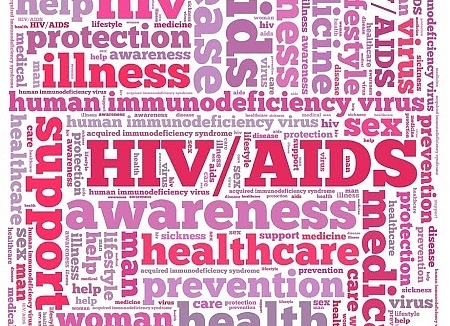Sex Ed
Safe Sex and STIs
[slickquiz id=1]
I had unsafe sex and now it burns when I pee …
Well, this actually means you’re one of the lucky few, you’ve caught an STI (not the lucky part) and you know about it (that’s the lucky part, you can get it treated ASAP). Most STIs (sexually transmissible diseases) and BBV’s (blood borne viruses) are asymptomatic, which means you could have something very nasty and not even know about it; you could be going on your merry way spreading a disease and have no idea. Untreated STIs can have serious consequences such as pelvic inflammatory disease in women which can lead to infertility and there is evidence that certain STIs could be linked to an increased risk of prostate cancer in men. Also, the longer you have an infection, the higher the likelihood that you can pass it on to others. It’s all quite a nasty state of affairs …
Now have a good think, when was the last time you had an STI screening? Now, be honest! A few months ago, a year, longer, maybe never? To some extent, STI screening depends on your individual risk factors, higher risk categories are people under 25, men who have sex with men, aboriginal people, sex workers, prison inmates and victims of sexual assault. If you are having regular casual sexual relationships, it’s recommended to be tested once a year and before entering a new relationship as a general guideline. You can be quickly and easily tested by your GP or you can go to your local sexual health clinic. The test is generally urine and blood sampling and possibly a vaginal swab in females; the standard tests are for chlamydia, gonorrhoea, syphilis, Hepatitis B and HIV. If there are symptoms present such as lesions, discharge, pelvic pain, pain on urination or when having sex then there may be a possibility the doctor will do more comprehensive tests for infections such as herpes, HPV and others.
Below are some info on the most common STIs …
Chlamydia
Chlamydia is one of the most common infections that mainly infect the penis, vagina and anus. Transmitted by vaginal or anal sex. Treatment is with antibiotics. Most people who have Chlamydia usually do not have symptoms so they do not know they have it.
Gonorrhoea
Gonorrhoea is a bacteria that infects the penis, vagina, anus and throat, transmitted by vaginal or anal sex. You can have gonorrhoea without knowing it as not everyone gets symptoms. The most common symptom is a discharge from the penis, vagina or anus. Treatment is with antibiotics.
Genital Warts also known as HPV (human papilloma virus)
The wart virus, which has many different strains, is transmitted by skin to skin contact during genital sex and can lead to cervical cancer in women. There has been an introduction of a vaccine against the main strains of HPV but this does not provide 100% protection. There is no treatment available once the virus is contracted.
Syphilis
Syphilis is a bacterial infection transmitted during sexual contact by coming into contact with contagious lesions. Symptoms can include an ulcer like sore or rash. Treatment is with antibiotics but it’s important to treat syphilis during the early stages to avoid serious complications and even death as the disease progresses.
Hepatitis A (HAV)
Hepatitis A is an acute (short term) viral infection that affects the liver. There is no treatment as the disease will naturally clear with rest and time. There is a vaccine that can protect you from contracting hepatitis A. Hepatitis A may be spread sexually if there is anal contact with a person who has this infection.
Hepatitis B (HBV)
Hepatitis B is a viral infection that results in inflammation of the liver. There is a vaccine available to protect against contraction of HBV. Acute Hepatitis B usually clears spontaneously but chronic HBV requires antiviral and interferon treatment. It can be passed on by unprotected vaginal or anal sex, by sharing drug injecting equipment or during unsterile tattooing or body piercing.
Hepatitis C (HCV)
Hepatitis C is a viral infection that affects the liver often leading to cirrhosis or cancer. It is spread by blood to blood contact. The risk of transmission during sex is very unlikely unless blood is present. Treatment is through a combination of Interferon which stops replication of the virus and enhances the body’s immune response, and Ribavirin which is an anti-viral.
Herpes
Genital herpes is caused by a virus which is transmitted by skin to skin contact during genital or oral sex. The virus may cause blisters or sores on the skin but some people don’t get any symptoms. There is no cure for genital herpes but treatment is available to lessen the severity of outbreaks.
Human Immunodeficiency Virus (HIV)
HIV is a viral infection that breaks down the body’s natural defences against infections by weakening the immune system. It can lead to fatal Acquired Immune Deficiency Syndrome (AIDS). There is no cure for HIV/AIDs. HIV is in the blood, vaginal secretions and semen of a person with the virus and is passed on by vaginal or anal sex without a condom or by sharing drug injecting equipment.
If you are tested positive for an STI, there are is likelihood the infection is quite easily treatable with antibiotics. For more serious infections, the doctor may do a specialist referral and for infections such as HIV, there is a strong focus on counseling and support. When a positive diagnosis is made, the principle of ‘contact tracing’ is vital, this is the process of identifying partners that the infected person has had sexual contact with so that they can be informed they may have been exposed and given appropriate testing, counseling and treatment. All aspects of contact tracing are kept confidential, including written and database records, none of the patients details are given at any time so your privacy is assured. Contact tracing is a highly effective way to ensure that people who may have been infected are informed as soon as possible in a confidential manner. Sure as hell beats calling all the people you’ve slept with to tell them the news!
After diagnosis and treatment, it’s important to remain abstinent from sexual activity until you are re-tested and deliver clear results. Yes, you can have protected sex but it’s not worth the risk so just waiting that short amount of time is far better. STIs can have a huge physical, psychological and social effect on a person so if you are concerned, there is plenty of counseling available that can be accessed through sexual health services.
Now safe sex isn’t just about wearing a condom, it’s about practicing correct technique and considering all modes of transmission. The only real safe sex is complete abstinence or a committed, monogamous relationship. These options are not always desirable or applicable so your next best bet is prophylactics such as condoms. To apply a condom correctly, first of all check the expiry date and don’t use condoms that have been exposed to heat (glove boxes, pockets etc.). After opening the packet, squeeze the air from the tip of the condom and gently roll it down the shaft of the penis right to the base, taking care of sharp nails. Use sufficient water based lubricant to prevent friction and the possibility of breakage or micro tears. After intercourse, hold the base of the condom whilst withdrawing and dispose of it in a bin.
Oral sex is also a mode of transmission for STIs and it’s something that a lot of people don’t actually consider. Yes, the risks are lower but there is still a risk so it’s highly advisable to use condoms and dental dams when having oral sex. To practice ultimate protection, it’s best to have 3 condoms available (for vaginal, anal and oral sex), water based lubricant and a dental dam. In the rare circumstance when the condom breaks, schedule for an STI screening straight away and for females who aren’t on oral contraception, the morning after pill is available from pharmacies or your GP and you have a 72 hour window period in which to get it.
Sexual health is just as important as your general physical health and mental health. You don’t want to put yourself at risk so take the right precautions, follow correct safe sex technique, keep up with routine STI screening and if in any doubt, your local sexual health clinic will be able to assist you.
Play safe
Image courtesy of Shutterstock
Join SimplySxy’s forum discussions now on Society
Do not miss another article on SimplySxy! Follow us on Facebook and Twitter for our latest updates!
I have always had an interest in health so my background is in Nursing, specialised in gynaecology, so I know the insides (literally) and outsides of vaginas, I had a keen interest in sexual health so doing my Master’s of Sexology was the ideal choice for me. I eventually plan to do my PhD with a thesis on Female Ejaculation. I believe sex is a natural, normal, healthy part of adult life. I love sex, I love talking about sex, and I also love helping other people enjoy sex too. I have a passion for the promotion of safe sex, supporting sexuality in people with disabilities and the importance of proper, realistic sex education. I have knowledge in a variety of sex and sexuality areas from Sex Therapy, kink, BDSM, sexological bodywork, sex and religion, sex toys, polyamory, sex surrogacy, sex and the law, LGBT, transgenderism, sexual dysfunctions, somatic sex, sex offender rehabilitation, pornography, sex and the elderly, sex after serious illness, sexual enhancement, fetishes, forensics, paraphilia’s, Tantra and many more. I’m a human rights activist in regards to female genital mutilation and sex trafficking and continuously work to make a difference and raise awareness in these areas. I write a blog which covers a myriad of topics and most of all is a platform for the promotion of safe sex. I work very hard, I’m extremely devoted to facilitation and education and if my work can prevent just one person contracting an STI or enable one person with a disability to experience sexuality then it will all be worth it because I’ll have made a difference to someone’s life and to me that’s everything. I regularly answer questions on the SimplySxy society board, I’m extremely open minded and totally non-judgemental so I’m happy to answer all questions on anything to do with sex and sexuality so long as it’s legal, appropriate and consensual behaviour. Stop by with any of your questions and I’ll be sure to answer them.
Get in touch with Laura via email at miss.danger@live.com.au



























